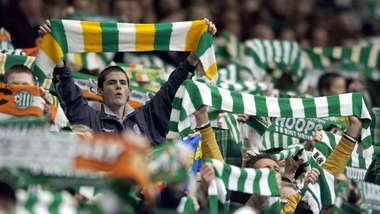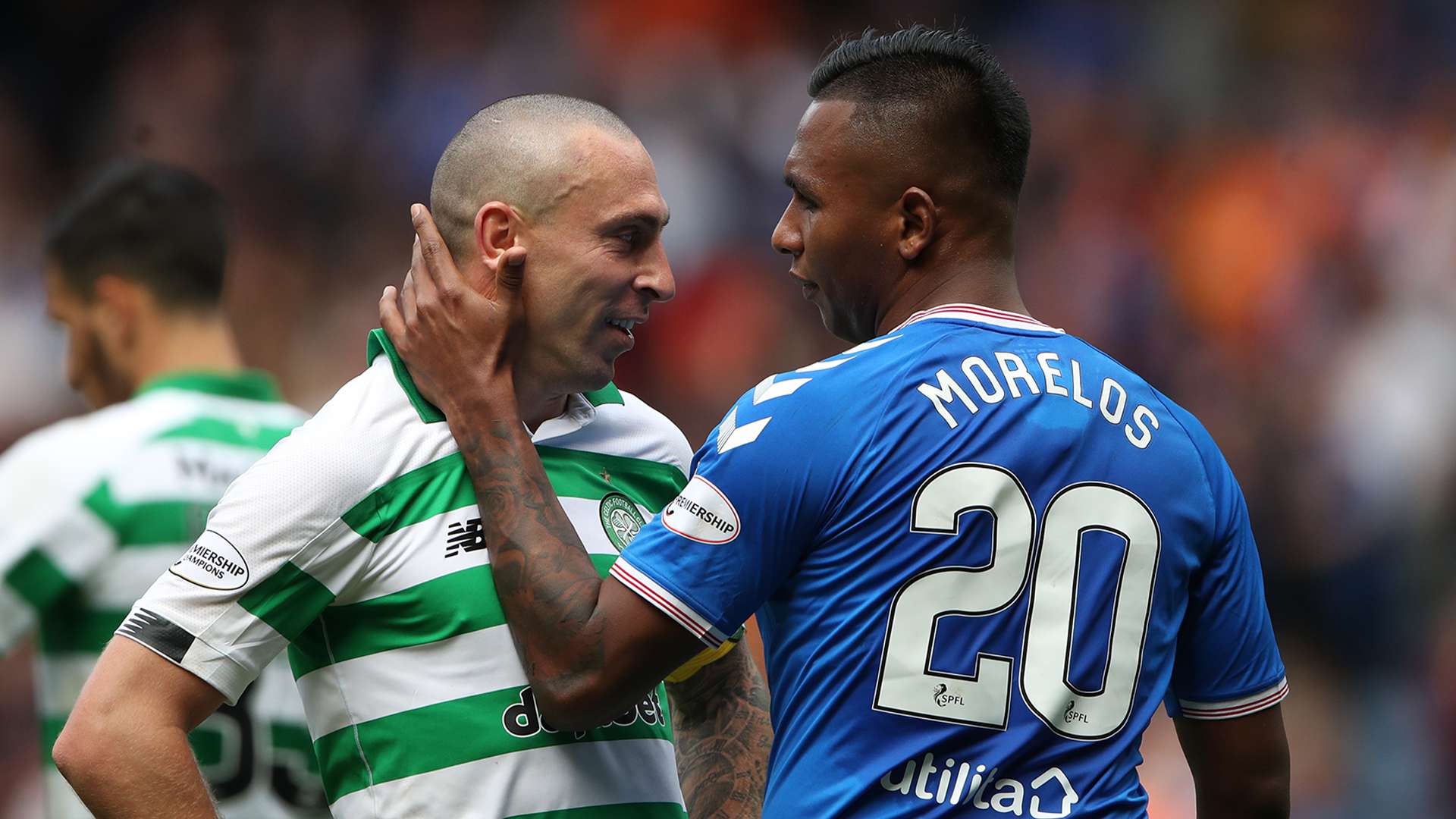Celtic vs Rangers is one of the most passionate – and heated – club football rivalries in the world, matching the intensity of the likes of El Clasico between Barcelona and Real Madrid.
▶ Viaplay is the place to watch Scottish football, La Liga & more! Subscribe now
The two Scottish teams have a storied rivalry, their match-up extending past the limits of football and into deeper themes of national identity, politics and religion.
GOAL has everything you need to know about why it's called the Old Firm derby, the history behind the two clubs and more.
Contents
- Why is Celtic vs Rangers called the Old Firm derby?
- Why do Celtic fans say there is no Old Firm derby?
- Why do Celtic and Rangers have such a deep rivalry?
- What does the Rangers slogan 'WATP' mean?
- What are Celtic's chants & song lyrics?
- What are Rangers' chants & song lyrics?
Why is Celtic vs Rangers called the Old Firm derby?
It is understood that the Celtic-Rangers rivalry has been dubbed the "Old Firm" since the early 20th century, when the two faced each off against each other in the 1904 Scottish Cup Final.
The magazine The Scottish Referee had drawn up a satirical cartoon of the two rivals in the lead-up to the game, acknowledging the commercialisation of their high-profile meetings that attracted large crowds and fervent support. A panel in the comic showed a man with a sandwich board that read: "Patronise The Old Firm: Rangers, Celtic Ltd".
Another theory is that the term originated from match commentators describing an early meeting between the two teams meeting as "like two old, firm friends".
Why do Celtic fans say there is no Old Firm derby?
Many Celtic fans take the antagonistic view that the Old Firm derby does not exist any more following the financial collapse of Rangers in 2012, which led to Rangers being run by a new company.
Instead, some Bhoys supporters and, indeed, the club itself, prefer to use the term 'Glasgow derby' to describe meetings between the two teams. By contrast, Rangers, notably, continue to officially use 'Old Firm'.
Relatedly, due to their 'death' and 'rebirth', Rangers and their fans are commonly disparagingly referred to by Celtic's support as 'zombies'.
Why do Celtic and Rangers have such a deep rivalry?
Celtic and Rangers are the most successful in Scottish football, but that's only one facet of their heated, deep-seated rivalry with one another.
Their rivalry is rooted in a divide of views regarding religion, identity and politics, as well their relationship with Ireland, particularly Northern Ireland.
Traditionally, Rangers supporters align themselves as native Scots or Ulster Scots as well as Protestant and Loyalist, while Celtic fans tend to be Irish-Scots and Catholic and Republican.
Rangers fans also tend to identify more as pro-British, waving Union Jack flags at matches while Celtic supporters are more commonly seen waving the Irish tricolour.
Rangers' history is deeply rooted in the Protestant community, and until Graeme Souness became manager in 1986, went decades without signing a Catholic player. Souness signing ex-Celtic forward Mo Johnston in 1989 brought an end to the practise, which is no longer continued.
When the transfer of Johnston was confirmed, the Glasgow Herald reported that he was Rangers' "first major Roman Catholic signing", further relating that the deal "caused some fans to demand their money back for season tickets".

Old Firm derbies are typically heated and intense affairs, rivalling such high-profile clashes such as De Klassieker in the Netherlands and El Clasico in Spain.
Legendary Celtic striker Henrik Larsson, who has played in both, conceded even those didn't live up to the Old Firm: "I never experienced anything, either before or after, that compared to my Old Firm games in Scotland. That was the best atmosphere and those were the most fierce encounters I ever played in.”
It's also a brutal environment for players to find themselves in the midst of, with Rangers legend Brian Laudrup calling the clash "terrifying".
"As soon as you join one of these clubs, from the very first minutes you are told about this game," Laudrup told the Daily Record. “To play in one was terrifying. It was a bit scary but on the other hand it’s tremendous to be involved in one of the world’s biggest derbies.
"For these players it's tremendous. They have read about the derby and heard about it from those who have played in the game but to actually be part of it is completely different. It’s something they will never forget.”
Several incidents in the late 90's during the derby have involved infamous pitch invasions, instances of vandalism and general hooliganism caused by the heightened tension of the clash, prompting the Scottish FA to hold the derby in early afternoon.
When Rangers had the opportunity to win the league against Celtic on the last day of the season in May 1999, several Celtic fans in the stadium took to throwing objects at the opposition players. One such object hit referee Hugh Dallas, who was forced to stop play and receive medical treatment.
Since then, measures have been taken to avoid the possibility of the Premiership being decided on the last day between Celtic and Rangers.
 Getty
Getty
What does the Rangers slogan 'WATP' mean?
The Rangers slogan 'WATP' stands for 'We Are The People'. It is sometimes sung as a chant by Gers supporters during football matches.
It is unclear what exactly the statement 'We Are The People' means and how it passed into Rangers fandom, but there are a number of possible origin stories. One suggestion is that it is a variation on 'we are the [chosen] people', while another, related, explanation is that it is taken from a passage in the bible.
The slogan is popular among the loyalist community in Northern Ireland and it is possible that it filtered into the culture of Rangers supporters from there, while the opposite is also true.
According to the book Who are 'The People'? (Shirlow and McGovern, 1997), a piece of graffiti commonly seen in parts of Northern Ireland was "We are the People: Prods Rule OK" - a reference to the Protestant community. The statement is understood as "a clear and unequivocal statement of loyalty, identity and devotion to and from Ireland's Protestants."
What are Celtic's chants & song lyrics?
Click here to see a list of the best and most popular Celtic chants
What are Rangers' chants & song lyrics?
Click here to see a list of the best and most popular Rangers chants




